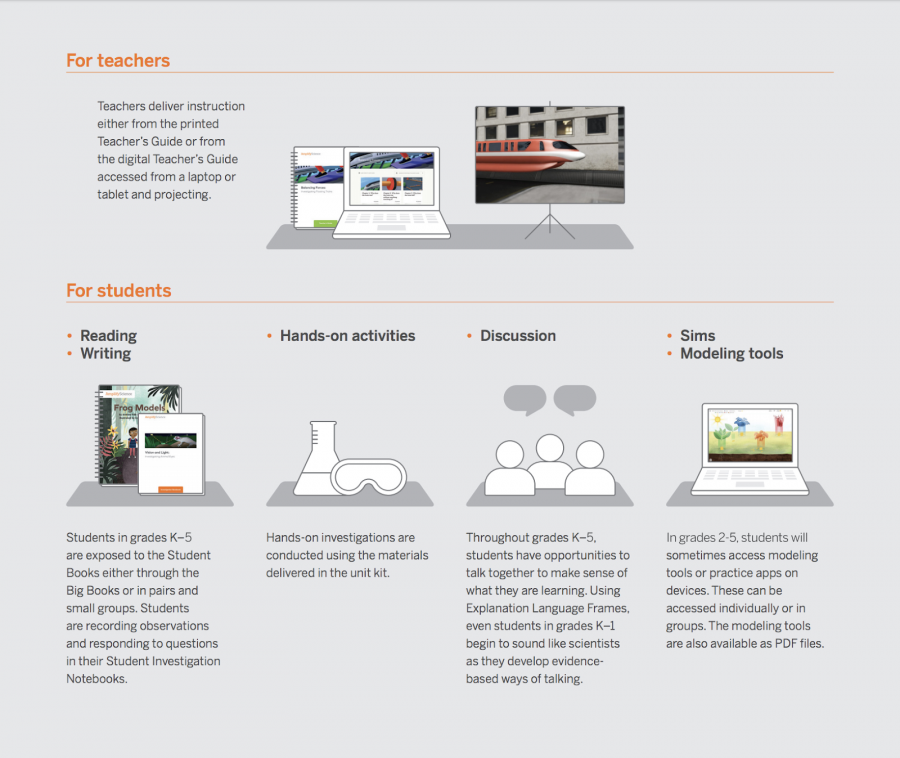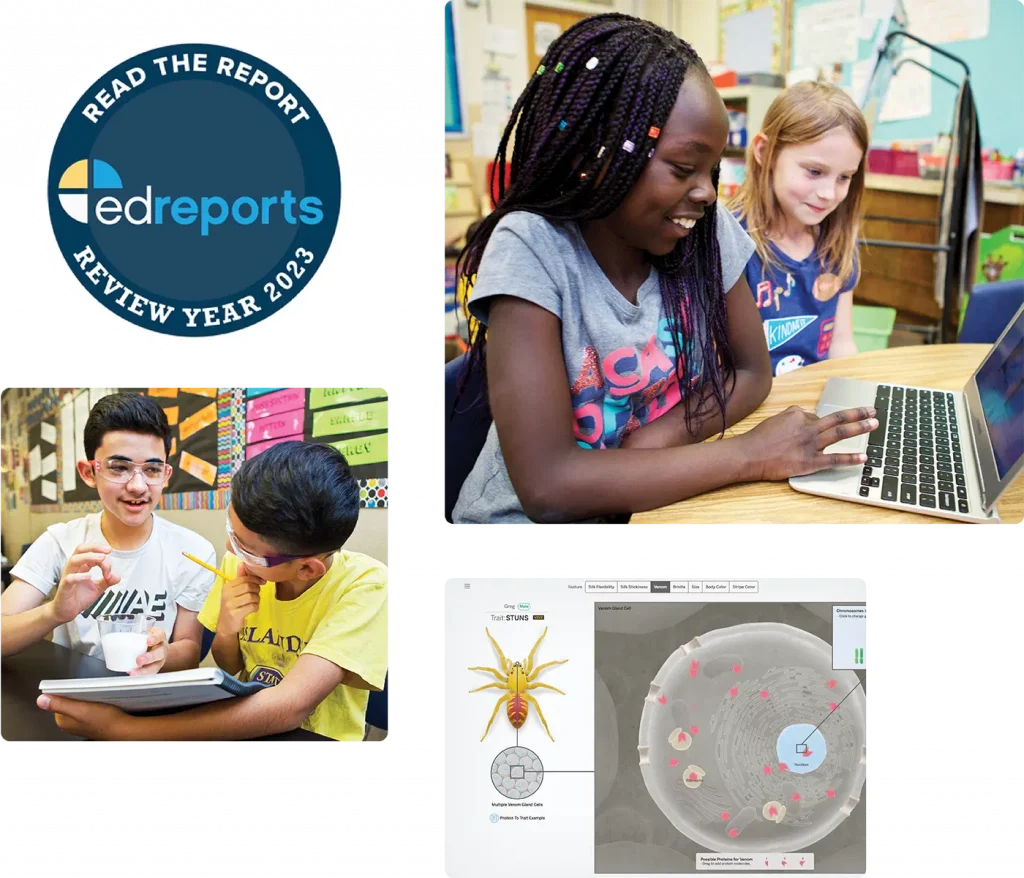A powerful partnership
Amplify Science was developed by the science education experts at UC Berkeley’s Lawrence Hall of Science and the digital learning team at Amplify.
The University of California, Berkeley’s Lawrence Hall of Science is a recognized leader in PreK–12 science education, producing groundbreaking curriculum products for more than 40 years, including the international award-winning Seeds of Science/Roots of Reading®. The Hall’s curriculum materials are used in one in four classrooms across the nation.

Amplify has been pioneering digital education products for more than 15 years, empowering teachers across the country to offer more personalized instruction and accelerate the potential of their students to become more active, engaged learners. Amplify has supported more than 200,000 educators and three million students in all 50 states.
Instructional model
The Amplify Science program is rooted in the proven, research-based pedagogy of Do, Talk, Read, Write, Visualize. Here’s how each element works:
DO
First-hand investigations are an important part of any science classroom, and Amplify Science has students getting hands-on in every unit, from building models of protein molecules to experimenting with electrical systems.
TALK
Student-to-student discourse and full class discussions are an integral part of the program. Students are provided with numerous opportunities to engage in meaningful oral scientific argumentation, all while fostering a collaborative classroom environment.
READ
Students read scientific articles, focusing their reading activities on searching for evidence related to their investigation, and importantly, on asking and recording questions as they read through fascinating texts on 21st-century topics.
WRITE
Following real-world practices, students write scientific arguments based on evidence they’ve collected, making clear their reasoning about how a given piece of evidence connects to one of several claims.
VISUALIZE
By manipulating digital simulations and using modeling tools to craft visualizations of their thinking— just as real scientists and engineers do—students take their learning far beyond the confines of what they can physically see in the classroom in an exciting and authentic way.
Elementary school course structure
- Pushes and Pulls
- Needs of Plants and Animals
- Sunlight and Water
- Spinning Earth
- Light and Sound
- Animal and Plant Defenses
- Properties of Materials
- Plant and Animal Relationships
- Weather and Climate
- Balancing Forces
- Environments and Survival
- Inheritance and Traits
- Changing Landforms
- Vision and Light
- Earth’s Features
- Waves, Energy, and Information
- Patterns of Earth and Sky
- The Earth System
- Ecosystem Restoration
- Modeling Matter
- Energy Conversions
- Balancing Forces
Middle school course structure
- Microbiome
- Earth, Moon, and Sun
- Ocean, Atmosphere, and Climate
- Weather Patterns
- Earth’s Changing Climate
- Metabolism
- Populations and Resources
- Matter and Energy in Ecosystems
- Traits and Reproduction
- Natural Selection
- Evolutionary History
- Harnessing Human Energy
- Force and Motion
- Force and Motion Engineering Internship
- Thermal Energy
- Phase Change
- Light Waves
- Phase Change Engineering Internship
- Chemical Reactions
- Magnetic Fields
Inside an Amplify Science classroom

Resources to support your review
- What’s so phenomenal about phenomena? – ebook
- Phenomena in grades K-5
- Student Books in grades K–5
- Literacy-rich science instruction in grades K–5
- Engineering in Amplify Science
- Virginia Standards Alignment
Ready to learn more?
To begin your review, fill out the form for more information about Amplify Science and to access the online digital curriculum.
